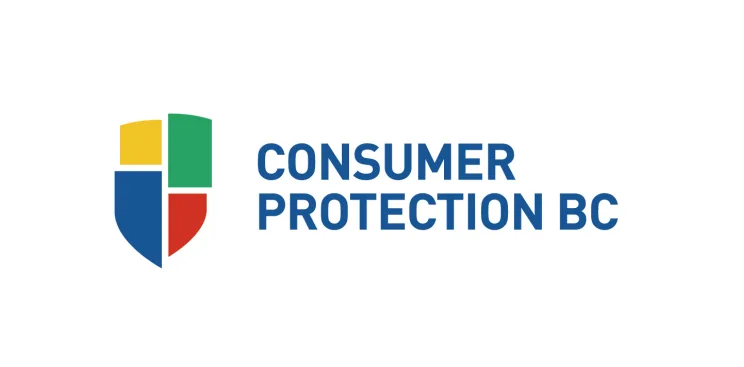
Someone who co-signs a loan has the same responsibilities as someone who guarantees a loan.
When lending money to someone with a shaky financial track record, a lender may ask for someone else to “co-sign” or “guarantee” the loan. Often it’s a friend or family member who’s approached. They may not realize what they’re getting into. Learn what you should consider before co-signing or guaranteeing a loan.
What you should know
When you co-sign for a loan, you and the borrower agree to be jointly responsible for the debt. Each of you is fully and independently on the hook for the loan. If one of you fails to make payments, the lender can ask either of you for the money.
When you sign a guarantee for a loan, you promise to pay the debt of the borrower if the borrower defaults on an obligation, such as missing a payment. You are the lender’s second resort. The lender must ask the borrower for the money before asking you.
In both cases — co-signing for a loan or guaranteeing one — the lender can come after you if there’s a default. But if you co-sign for a loan, the lender can come directly to you for payment.
“My son took over our family-run restaurant. I agreed to guarantee a business loan for him. That was before I knew he had a gambling problem. He’s fallen way behind in his payments, and now the bank is coming after me to collect. I think I may have to sell my home to pay the debt.”
– Marjorie, Surrey, BC

A lender who’s nervous about floating someone a loan may ask for a guarantee. A guarantee is a promise by another person to pay the debt if the borrower can’t. The borrower is called the principal debtor. The person guaranteeing the debt is called the guarantor.
The guarantor’s responsibility for the debt
As guarantor, you are the backstop. You’re responsible for the debt only if the principal debtor defaults on an obligation, such as missing a loan payment. The lender must ask for payment from the principal debtor before coming to you.
If the principal debtor can’t pay what they owe, the lender can ask you to pay the amount still outstanding. For example, if the principal debtor paid back $3,000 of a $5,000 loan, the lender can ask you for the remaining $2,000.
Always read the fine print
As guarantor, you may have to pay for some expenses, like the lender’s costs to collect the debt. Be sure to read the fine print of any guarantee before signing it.
The responsibilities depend on the type of guarantee
Your responsibilities as a guarantor depend on what type of guarantee you give. There are three types of guarantee:
specific or limited guarantee
continuing guarantee
all-accounts guarantee (also called an unlimited guarantee)
In a specific or limited guarantee, you agree to be responsible for a certain amount for a specific thing. For example, if you guarantee your brother’s $5,000 car loan, you’re responsible for up to $5,000 if your brother defaults on the loan.
In a continuing guarantee, you agree to be responsible for a particular type of loan for as long as the guarantee lasts. For example, say you guarantee a line of credit for your spouse’s business. The amount owing at any time will depend on the business’s need for money. If your spouse defaults on the loan, the line of credit could be at zero, or at its limit, or anywhere in between. You’re responsible for whatever is owing on the line of credit at the time of the default.
In an all-accounts guarantee, you agree to pay whatever the principal debtor owes to the lender. This could include debts you don’t know about.
Consider putting a cap on your guarantee
If you’re guaranteeing a loan, be careful about exposing yourself to future debts in the bargain. Often, standard loan forms make the guarantor responsible for any money the borrower borrows in the future. Consider putting an upper limit on how much you as guarantor will be responsible for.
When you co-sign for a loan, you and the borrower are now equal owners of the debt. You are “joint debtors.” Each of you is fully and independently responsible for paying back the loan. If one of you fails to make payments, the lender can expect money from the other. The lender needn’t even ask the borrower. They can come directly to you.
For example, say you co-sign a $5,000 loan with your daughter. You and she are each responsible for paying back the lender, until the full $5,000 debt is retired. If your daughter misses a payment after paying back $1,000, the lender can ask you for the remaining $4,000. The lender doesn’t have to ask your daughter for payment first.
If you co-sign a loan for someone, there’s little you can do to shift liability to the borrower. The law doesn’t care, for example, if you and the borrower have agreed between yourselves who will pay off the debt. Any agreement you make with the borrower is not one that can bind the lender.
Ask for updates
If you co-sign a loan, ask the lender to keep you updated on all activity on the loan. This can help you to see a problem developing and fix it before it’s too late. You should also ask for a copy of everything you sign.
Acceleration clauses are common in loan agreements. They let the lender demand immediate payment of the whole loan if the borrower defaults on an obligation, such as missing a payment. Think carefully before co-signing or guaranteeing a loan with an acceleration clause.
Say you guarantee your son’s $5,000 car loan with an acceleration clause. Three months later, he’s late with a monthly payment. The lender can now demand immediate payment of the entire $5,000 from your son. If your son doesn’t have the money, you’re responsible for the balance.
If you co-sign your son’s loan, your situation is a little different. After the late payment, the lender would have the right to demand immediate repayment of the entire $5,000 from you or your son. In other words, where there is an acceleration clause, the question to think about is not just whether you can take over the payments, but whether you can pay off the whole thing if the lender comes knocking.
Be crystal clear on the terms
Whether you are co-signing or guaranteeing a loan, be clear about how much the loan is for, and whether the borrower can increase it without telling you. If they can, ask for a clause capping the amount that can be borrowed at a number you’re comfortable with. You are potentially responsible for the maximum amount of the loan, not just the amount they’re using right now.
Co-signing or guaranteeing a loan can affect your credit score. This is a number calculated from your credit report. Banks, businesses, and other institutions use your credit score to decide whether to lend you money, hire you, or do business with you.
If you co-sign for a loan, the debt will be recorded on your credit report immediately. If the other joint debtor misses a payment or pays too slowly, your credit score could take a hit. This is because joint debtors are equally responsible for paying back the debt.
If you guarantee a loan, the debt is not recorded on your credit report immediately. If the borrower defaults on a payment, the lender may demand payment from you if the borrower can’t pay. If you don’t repay the debt after the demand, the debt will then be recorded on your credit report and could lower your credit score.
See our guidance on credit reports for more on credit reports and credit scores.
Your credit score could improve
Co-signing a loan for someone is a good way to help them improve their credit — if they make the payments under the loan. As a co-signer, your credit will also improve if regular payments are made on time.
When you co-sign a loan, the debt is recorded on your credit report immediately. Even if there is no default on the loan, the sheer existence of the loan affects how much money you can borrow.
For example, let’s say your credit report shows you have the capacity to take on $500,000 in debt. If you’ve co-signed for a $100,000 loan, then you can’t take out a $500,000 loan. A creditor will consider the amount you have co-signed for as lowering your borrowing capacity.
Once the loan is paid off, confirm with the lender that you’re no longer liable under your guarantee or as a co-signer. Ask the lender to return the original guarantee or loan document.
You should also request a document clearing you of any further liability for the loan. Examples of this type of document include:
a letter of acknowledgment
a copy of the debtor’s discharge
a release (see our release template for an example)
Work out problems
There are situations where you may not be liable to repay a debt as a guarantor or co-signer of a loan.
For example, a lender (or borrower) cannot use force, fraud, duress or illegal means to get someone to guarantee or co-sign a loan. If they do, the agreement is not binding. Duress means you were pressured into an agreement. The duress can be physical, psychological, or economic. For example, if a lender threatens never to lend you money ever again unless you co-sign a loan for your daughter, that’s economic duress. If you do co-sign the loan in those circumstances, you’re not liable for the loan.
The law allows certain defences for guarantors that are not open to co-signers. For example, if the lender and principal debtor make significant changes to a guarantee that are harmful for the guarantor, then the guarantor may be able to get out of paying off the debt.
For example, let’s say a lender lowers the monthly payments for a principal debtor who’s having trouble making payments. If the change means a much longer period passes before the lender claims against the guarantor, the change could be seen as prejudicial to the guarantor. The guarantor may be able to get out of paying the debt.
Consider seeking legal help
If you think you may have a defence against having to pay a debt that you guaranteed or a loan that you co-signed, you should seek legal advice.
What do you do if you’ve co-signed or guaranteed a loan and the lender comes looking to you for payment — and you’re not in a position to pay? You can try negotiating a reduced payment.
A lender may agree to release a co-signer from liability if they pay a portion of the loan. For example, say you co-sign a $5,000 loan for your daughter. A lender may agree to accept $3,000 from you instead of holding you responsible for the entire $5,000 (as they are legally entitled to). The lender might then try to get the balance of $2,000 from your daughter.
If you have co-signed or guaranteed a loan, you may be able to negotiate with the lender to limit your liability for the loan. For example, the lender may agree to release you from responsibility if:
someone else is willing to replace you as guarantor or co-signer
the borrower has already repaid most of the loan
there are enough other co-signers or guarantors to satisfy the lender
As a guarantor or co-signer, you can make a separate contract with the other borrower to address a default. The contract can require the other borrower to reimburse you for any payments you have to make if they default on the loan. This is called “indemnifying” you for any harm or loss. It should include any legal fees you have to pay to pursue them to reimburse you.
This step won’t help your credit rating, but it may help your pocketbook. Whether or not this option is worth the effort depends on:
the size of the loan
the steps you need to take to pursue the other borrower for payment
whether or not the other borrower has the means to pay you
Common questions
It depends on the type of guarantee. If you give a specific or limited guarantee, your liability is contained. You’re at most on the hook for the amount of the loan. For example, say you give a specific guarantee for your son’s $5,000 loan. The maximum you would have to pay if your son defaults is $5,000.
If you give a continuing guarantee, you’re liable for the debt for as long as the guarantee lasts. Say you give a continuing guarantee for your brother’s line of credit. The amount drawn on the line of credit will change over time. If your brother defaults when there is $1,200 drawn, that’s the amount you’d have to pay.
If you give an all-accounts guarantee, you’re liable for whatever amount the debtor owes the lender. If the loan agreement allows the debtor to borrow more, you’re liable for the extra.
The moment you co-sign a loan for someone, you become responsible for the entire amount of the loan immediately. This means that if the debtor defaults, the lender can demand payment from either of you. For this reason, the debtor and co-signer are commonly referred to as joint debtors.
Not right away. And not at all unless you become responsible for the debt and you can’t pay.
When you guarantee a loan, you don’t become responsible for the borrower’s debt right away. You’re only on the hook for the debt if the borrower defaults, the lender asks the borrower for the money, and the borrower can’t pay. If the lender then comes to you, and you cover the debt, your credit score remains unaffected. If you can’t pay, your credit score goes down.
The lender may have asked the borrower to give a security interest for the loan you guaranteed or co-signed. For example, if the loan was to help a relative buy a car, the lender may have asked for a security interest in the car. If so, and the borrower fails to make a loan payment, the lender could take (“seize”) the car. If the lender does that, the borrower is not responsible for anything more. As long as the car was used primarily for personal purposes, the lender can’t sue them after seizing the car, even if the car is worth less than the amount of the loan they still owe.
Meanwhile, if you gave a security interest for the borrower’s loan, the lender can seize what you put up as security. They can do so instead of going after the borrower or seizing what the borrower offered as security.
A major risk if you co-sign or guarantee a loan is you may be responsible for additional money the borrower later borrows. Standard loan forms often make you responsible for the loan in question, as well as any other amounts the borrower borrows from the same lender in the future. This is even if you don’t know anything about the later borrowing. So if you co-sign or guarantee a loan, consider asking that an upper limit be included in the loan agreement, limiting how much you could be responsible for.
Guaranteeing a loan or other debt doesn’t always need your signature on a guarantee agreement. One example is a secondary credit card. This is where someone gets their own credit card on a primary cardholder’s account. The contract with the credit card issuer might say that by using the card, the secondary cardholder is guaranteeing all further debts on the credit card.
Another example is a small business loan. The loan agreement might say the person making the agreement for the company is also personally guaranteeing the debt. No separate signature or acknowledgement is required — the one signature you make for your company also binds you personally.
You can always try to negotiate with the lender so you are no longer liable for a loan you guaranteed or co-signed. For example, someone else may be willing to replace you as the guarantor or co-signer. Or the borrower may have repaid most of the loan — enough to satisfy the lender to let you off the hook.
Who can help

Consumer Protection BC
They can help if you have a complaint about a debt collector.


